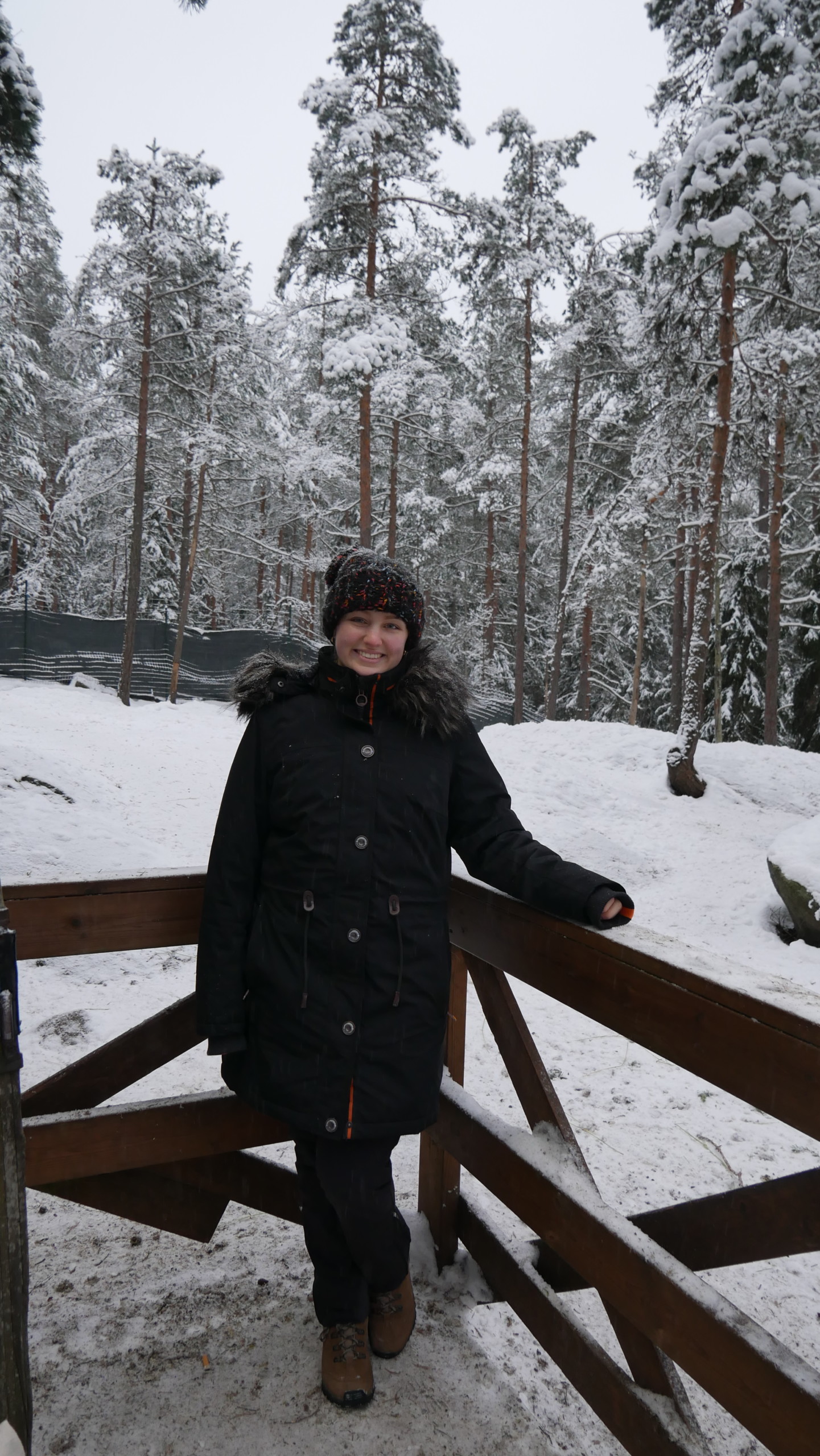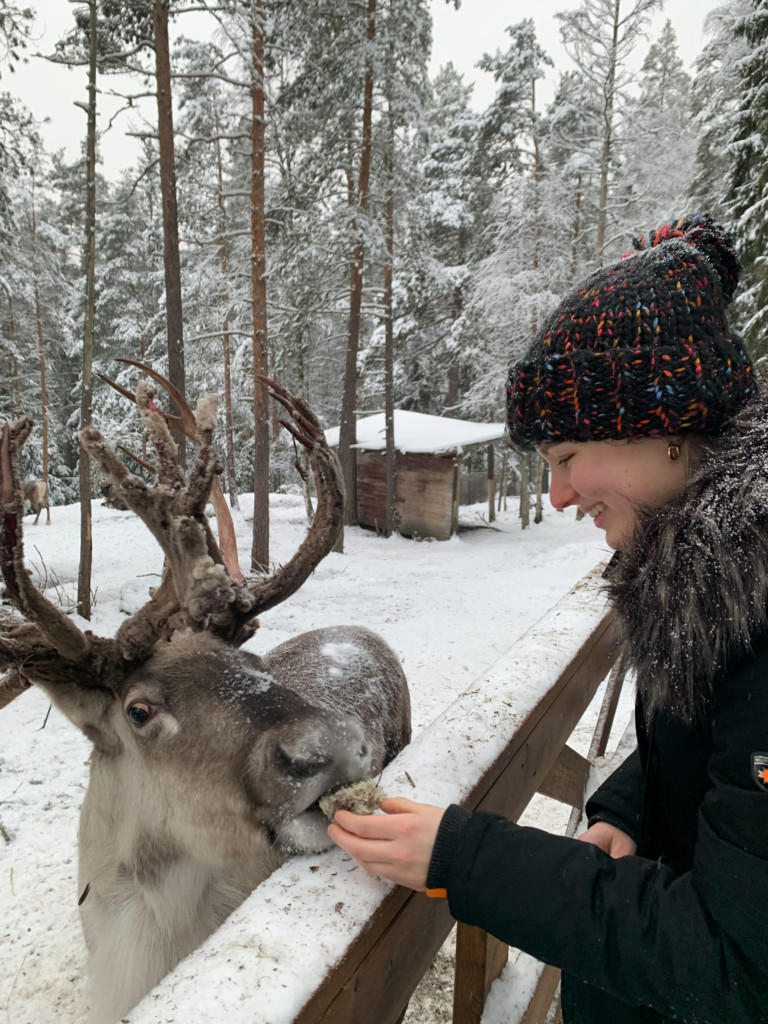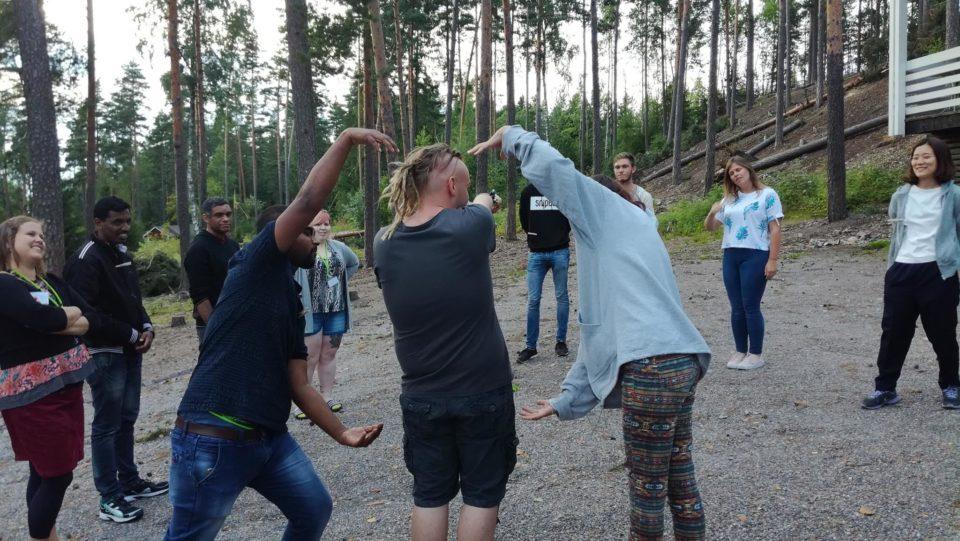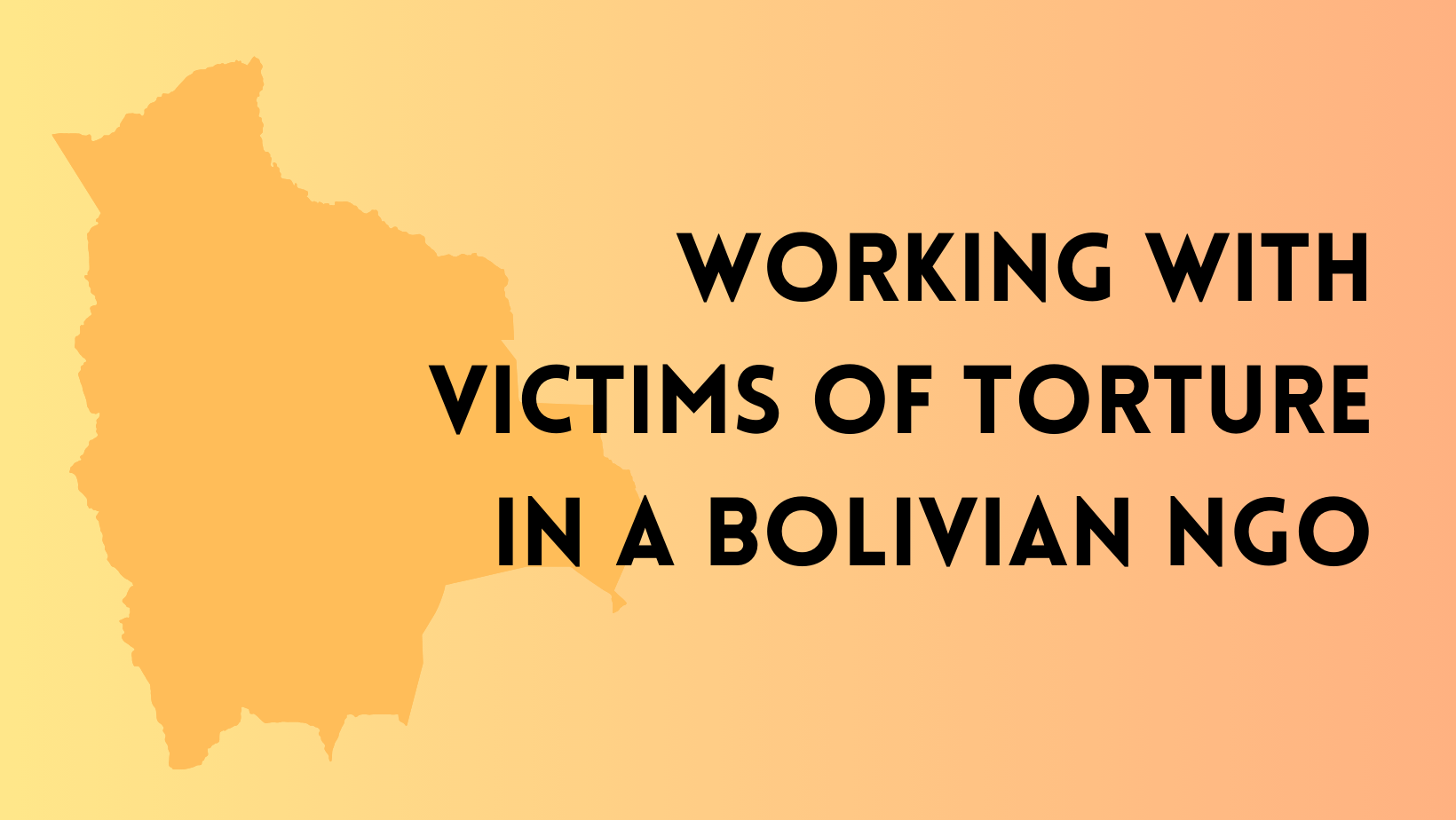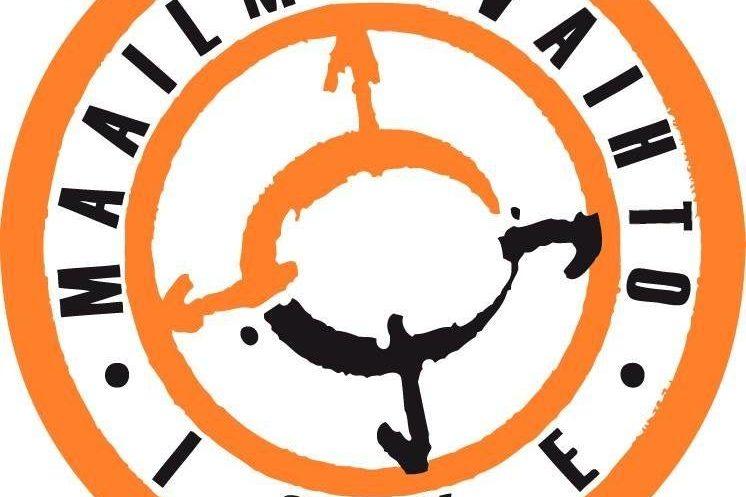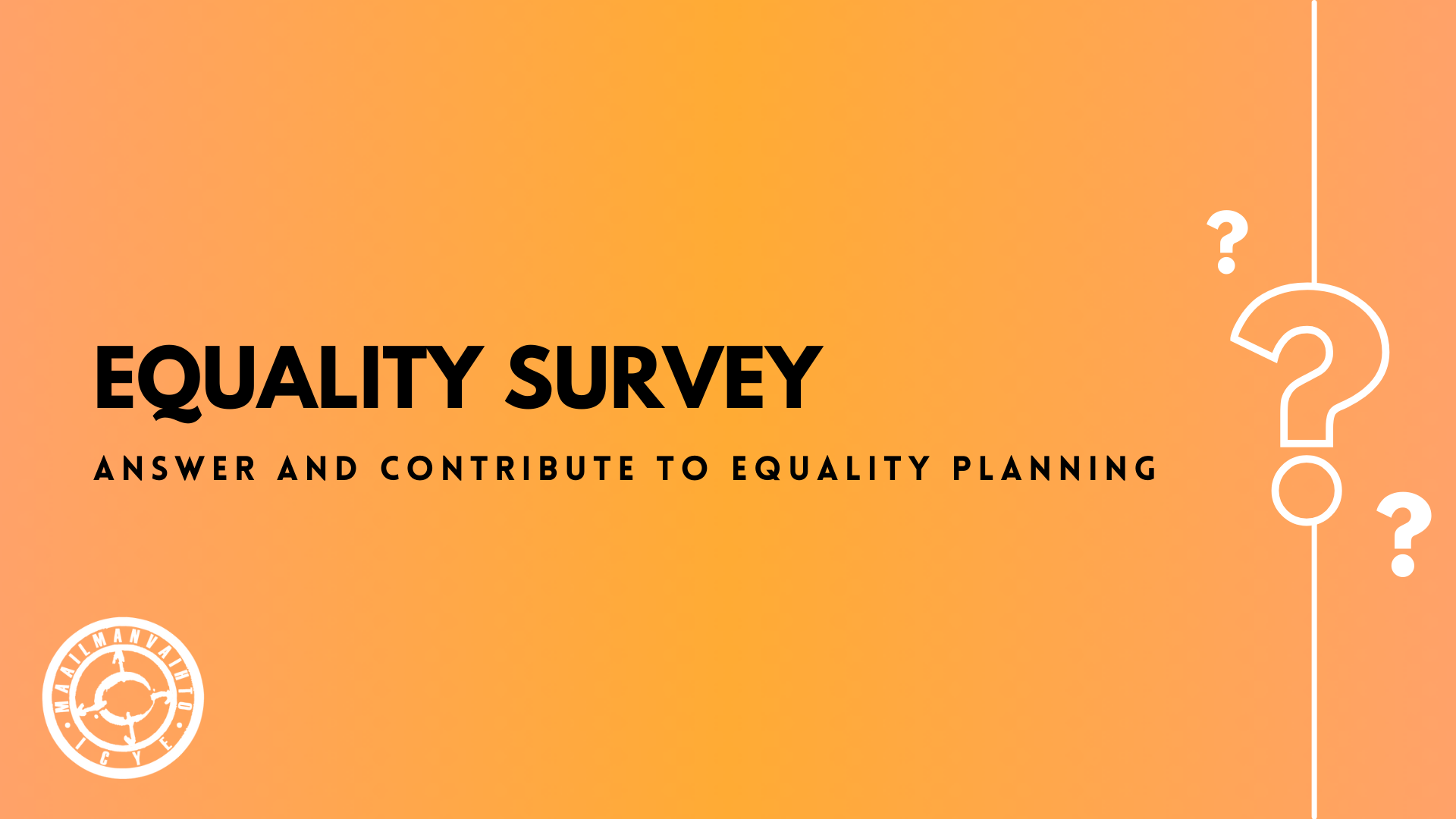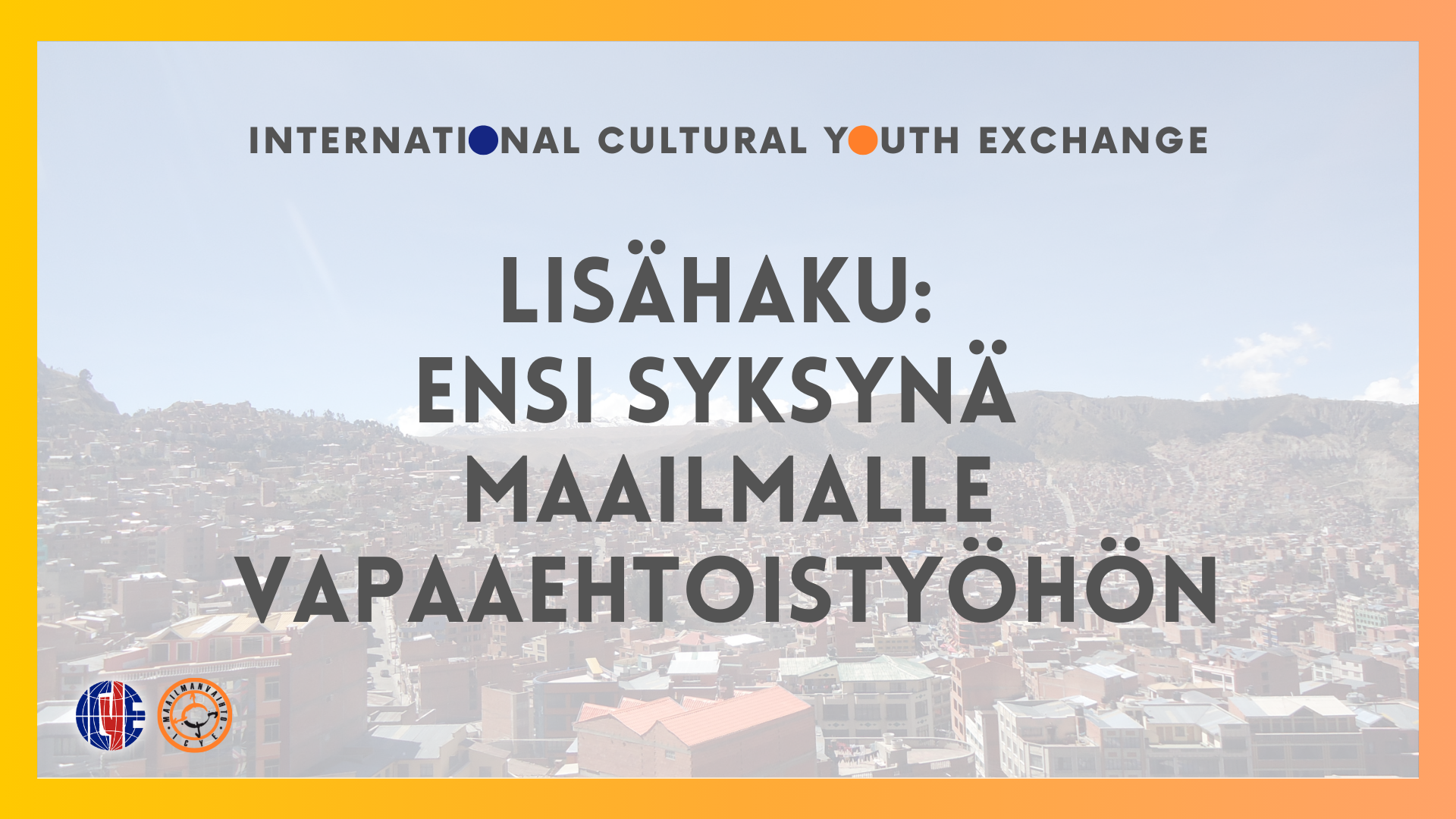What’s up with the volunteers of Maailmanvaihto? Two of them share their greetings. Mariam Darbaidze traveled to Finland for volunteering from Georgia and Asta Lehtola from Finland to Philippines.
Mariam: from Tbilisi to Helsinki
I wanted to join international volunteering…
to get a new experience. I had volunteered many times in local activities back in Georgia, but I had never done it abroad. In general, international volunteering impressed me for several reasons: after my bachelor’s degree, I took a gap year to think more about my career path and I decided to take part in the European Solidarity Corps. My professional background is sociology, so studying different cultures has always been one of my passions. This volunteering project was a great way to get out of my comfort zone and experience an independent life, even more challenging with my hearing loss. The European Solidarity Corps helped me to fulfill all of these and it still continues surprising me.
I ended up at my voluntary workplace because…
I found out about the open volunteer position at Maailmanvaihto online, and I was immediately interested. Finland is quite expensive and difficult to travel to from Georgia, which is why volunteering seemed like a once-in-a-lifetime possibility for me to travel here. I read Maailmanvaihto’s website very carefully, and Maailmanvaihto seemed to me a trustworthy organisation with important values and mission, and interesting volunteering opportunities. Maailmanvaihto works to establish intercultural learning experiences through long-term international volunteering, besides which it advances equality and peace among young people. Before my interview for the volunteering position I contacted another Georgian volunteer who had been in Finland as a volunteer through the European Solidarity Corps and she gave me a big recommendation to come here. As you can guess, I had plenty of reasons to move to Finland.
My volunteering days are filled with…
office related tasks but sometimes I have outdoor activities as well. My tasks include emailing with volunteers and partner organisations, promoting available placements and assisting in the volunteer selection process, arranging travels, writing newsletters for our volunteers, updating guidebooks, participating in magazine making, and updating the English version of the website. During volunteering camps, I help in the kitchen, facilitate activities, take videos and photos, and participate in social media management. Sometimes I visit schools and exhibitions to promote our international possibilities among young people. Right now, I am working on my personal project which is making interview videos related to the topic of international volunteering as a person with disabilities. When I was planning to participate in a European Solidarity Corps volunteering project, I had an unclear image about the support the program can offer for volunteers with disabilities. With my project, I wish to make participating in the European Solidarity Corps volunteering easier for other young people with disabilities. Young people with disabilities usually do not volunteer abroad as much as other young people. I hope this project will be beneficial for our organisation and for the European Solidarity Corps general. I hope people who watch these videos will see that young people with disabilities are not only receivers but also givers of knowledge and effort.
The languages I use to communicate with the people here…
rely on respect. My volunteering environment is respectful and safe. We regularly have an office meeting to discuss our tasks, which helps me not to miss anything. The people here really are interested in my actions, thoughts, and feelings. We communicate in English, Finnish and Georgian. I have conducted a Georgian cultural evening, and other volunteers and I organise together monthly a language café. The European Solidarity Corps has improved my linguistic competences. As a hard of hearing person, I feel more motivated to know languages very well because sometimes when I cannot hear, people think that I am not fully aware of the language. Volunteering abroad has assisted me to feel more confident with foreign languages.
I think that inspirational co-operation in volunteering builds on…
communication, when people, coworkers, partner organisations share the same values and principles, when they have a similar understanding. At my volunteering project, it inspires me to be approachable and initiative. For instance, when I go to schools and promote international volunteering, I consider it as an important task because when I was a pupil I had no idea about this kind of international experience. At that time, I was very vulnerable and would have been happy to know also about other options besides colleges and universities. Maailmanvaihto supports me to create new co-operations. I am so happy that during my volunteering period, we have connected with Kuuloliitto (an association for people with hearing disabilities) through which have had the opportunity to make connections, learn, experience, and get more aware of hearing loss. It has been planned that Maailmanvaihto and Kuuloliitto will continue co-operating after I leave, which makes me delighted.
For those interested in volunteering abroad, I wish to say…
that go for it, just check the volunteering project, placement, and the duties of volunteers very attentively to be sure that it is the right place for you. The volunteering project also must suit your values and interests. I really recommend the European Solidarity Corps volunteering to everyone but at the same time: it will not be exciting all the time, it can be challenging, sad, and exhausting sometimes and it is okay as well. I especially recommend this for young people with disabilities. Our opportunities are already limited for many reasons and we do not have the luxury to waste many chances. The European Solidarity Corps will cover your individual needs, so do not hesitate to try it. It is also possible to visit the host country and organisation before starting the project. The sending and hosting organisations, disability organisations, and the national agencies will support you, just apply. Long-term volunteering abroad can be a mind-blowing experience for you and your expertise as a young person with disabilities will be beneficial for the hosting organisation.
Interview: Minna Räisänen
Photo: Hanna Sainio
In the photo: ”A well-deserved rest together Ansku (right), one of Maailmanvaihto’s support people, after cleaning up at the beach”, describes volunteer Mariam Darbaidze the photo.
Asta Lehtola shares greetings from volunteering at San Remigio Rural Health Unit in Philippines on our Finnish website >> Read the interview of Asta
The article has been published in the magazine MaailmanVaihtoa – Volunteers’ Voices 1/2023.


